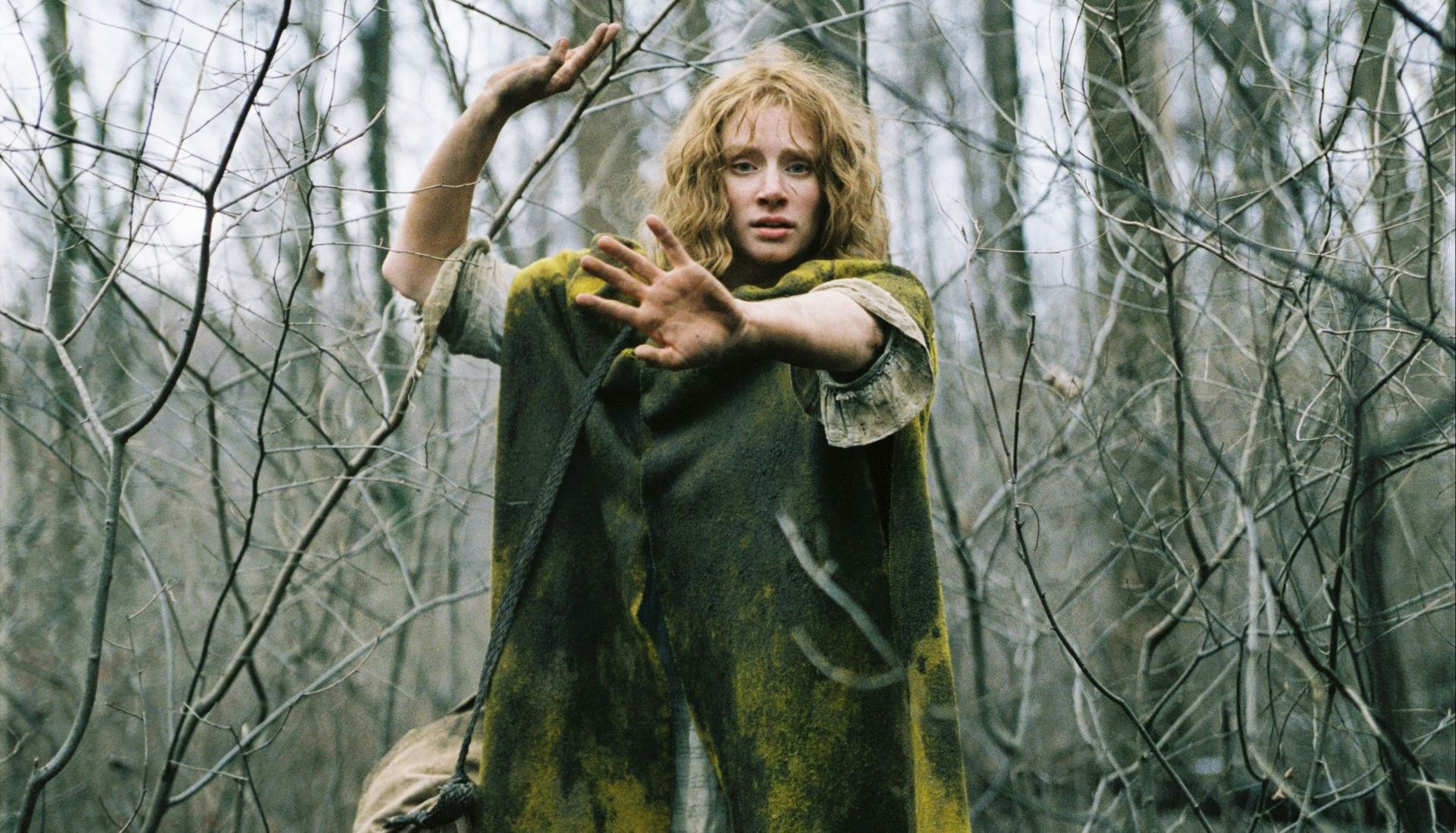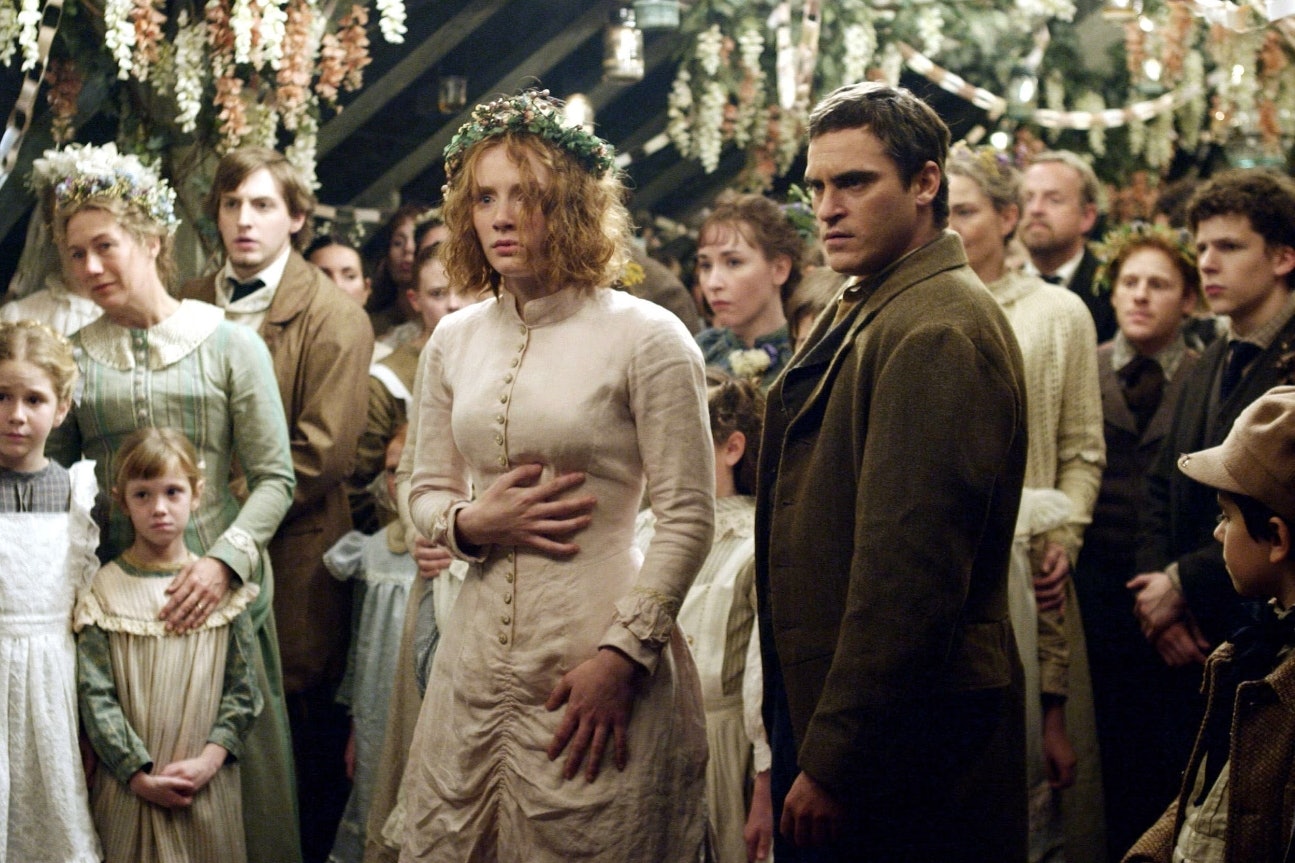
To be a parent in the M. Night Shyamalan universe is to desperately, often helplessly, attempt to protect your children from otherworldly forces beyond your control, whether it’s an alien invasion in Signs (2002), a seemingly inescapable beach that accelerates decay in Old (2021), or the end of the world itself in Knock At The Cabin (2023). But what happens when the monster under your child’s bed is you?
That question reveals itself with increasing melancholy in Shyamalan’s sixth feature, The Village, set in an isolated colonial village in the 1800s. Existence is idyllic, but only within its boundaries. Transgress into the surrounding woods, the elders frequently warn, and the fearsome creatures living there will attack.
But when the soft-spoken Lucius (Joaquin Phoenix) is gravely injured and his fiancé Ivy (Bryce Dallas Howard) begs for permission to leave so she can fetch medicine from the neighboring towns, her father finally reveals the truth: there are no creatures. Each of the elders, traumatized by the hurt and loss they experienced out in the world, retreated to this self-contained time capsule they set up years ago. This haven is nothing but a constructed escape from their past lives. The monsters? The elders in costumes.
The threat of the creatures wasn’t born out of the desire to punish; when Lucius reveals that he once strayed past the village boundary, Ivy’s father compliments his fearlessness. Nevertheless, these monsters function as an instrument of control, the systematically ingrained fear of them preventing anyone from ever leaving. The indoctrination starts young. In an early scene, schoolchildren recite what they know of the creatures: that they’re meat eaters with large claws. Their red cloaks are such a visual shorthand for terror that even innocuous red items, like berries or flowers, spark panic.

Shyamalan infuses this atmosphere with slow-creeping dread. In this hermetic world lit by the warm glow of lanterns and candlelight, the first sighting of the creatures — a streak of blood red across the night landscape — is a jolt. In one tense scene, Shyamalan foregrounds Ivy’s trembling outstretched hand as a creature lumbers towards it, Lucius reaching her only seconds before it does. In another scene, a child’s piercing scream cuts through wedding festivities.
Even so, The Village is one of Shyamalan’s most romantic movies, as a real and tender relationship flourishes in a world so reliant upon artifice and pretense. In a village shrouded in secrecy, Ivy sees Lucius with perfect clarity. In one of the film’s most romantic scenes, every hidden emotion Lucius feels pours out of him in a torrent. His voice barely rises above a whisper, but the intensity of his passion is clear.
It’s through this romance that Shyamalan reveals just how insidious a form of brainwashing the threat of monsters has become. Ivy admits she has no reason to go on living without Lucius, but even then, she says she’ll defer to her father’s will if he refuses to let her fetch him his life-saving medicine.

There’s an irony in how, for all of the elders’ talk of never going back, they very literally live in the past. They keep reminders of the trauma they faced, and in refusing to let themselves forget, they don’t let themselves heal, instead perpetuating the cycle with their children. In a bid to protect them, all they’ve done is instill a fear that dangers lurk in every corner.
What kind of world do we owe our children? How can we best prepare them to live in it after we’re gone? Shyamalan returned to those questions in Knock At The Cabin, in which creating a safer world comes at the cost of great personal sacrifice. The Village, both one of his best and most pessimistic films, places the burden of that sacrifice on the next generation too.
Lucius gets his medicine, but the town’s elders opt to continue the charade, using the demise of another villager to keep perpetuating the fear of monsters. The cost of stability becomes collective denial and delusion. The village, set up as a comforting cocoon, comes to resemble a trap. For Shyamalan, a director with such a proclivity for supernatural frights, The Village is a sobering reminder that the real-world anxieties of parenting are still the hardest to shake.







